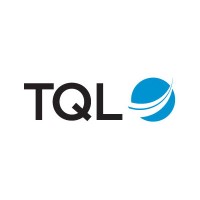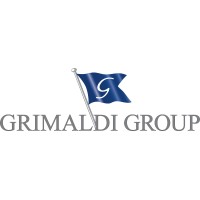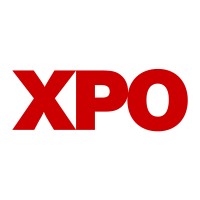
DSV - Global Transport and Logistics Company Cyber Security Posture
dsv.comAt DSV, we keep supply chains flowing in a world of change. We provide and manage supply chain solutions for thousands of companies every day – from small family-run businesses to large global corporations. Our reach is global, yet our presence is local and close to our customers. Approx. 75,000 employees in over 80 countries work passionately to deliver great customer experiences and high-quality services. We aspire to lead the way towards a more sustainable future for our industry and are committed to trading on nature’s terms. DSV is a dynamic organisation that fosters inclusivity and diversity. We conduct our business with integrity, respecting different cultures and the dignity and rights of individuals. Read more at www.dsv.com.
D-GTL Company Details
dsv
45680 employees
1063403.0
484
Truck Transportation
dsv.com
160
DSV_2331969
In-progress
Between 500 and 600
This score is AI-generated and less favored by cyber insurers, who prefer the TPRM score.
 D-GTL Global Score
D-GTL Global Score.png)

DSV - Global Transport and Logistics Company Scoring based on AI Models
| Model Name | Date | Description | Current Score Difference | Score |
|---|---|---|---|---|
| AVERAGE-Industry | 03-12-2025 | This score represents the average cybersecurity rating of companies already scanned within the same industry. It provides a benchmark to compare an individual company's security posture against its industry peers. | N/A | Between 500 and 600 |
DSV - Global Transport and Logistics Company Cyber Security News & History
| Entity | Type | Severity | Impact | Seen | Url ID | Details | View |
|---|
DSV - Global Transport and Logistics Company Subsidiaries

At DSV, we keep supply chains flowing in a world of change. We provide and manage supply chain solutions for thousands of companies every day – from small family-run businesses to large global corporations. Our reach is global, yet our presence is local and close to our customers. Approx. 75,000 employees in over 80 countries work passionately to deliver great customer experiences and high-quality services. We aspire to lead the way towards a more sustainable future for our industry and are committed to trading on nature’s terms. DSV is a dynamic organisation that fosters inclusivity and diversity. We conduct our business with integrity, respecting different cultures and the dignity and rights of individuals. Read more at www.dsv.com.
Access Data Using Our API

Get company history
.png)
D-GTL Cyber Security News
DSV Completes the US$16.2 Billion Acquisition of Schenker
DSV A/S has officially completed the acquisition of Schenker from Deutsche Bahn, marking the largest transaction in the company's history.
DSV Opens Specialized Warehouse In Ohio
The global transport and logistics company designed its New Albany facility to serve the tech and electronics industries.
Geopolitical Tensions Fuel Defense and Energy Sector Opportunities Amid North Korea-Russia Alliances
The deepening military collaboration between North Korea and Russia has created a volatile geopolitical landscape, with significant ...
EU regulators to decide on $15.4 billion DSV, Schenker deal by April 8
DSV announced the deal for the logistics arm of German state rail operator Deutsche Bahn in September last year, which will create the world's ...
The acquisition playbook: How DSV became a logistics giant
What started as a small Danish trucking venture in 1976 has transformed into a logistics powerhouse. The acquisition playbook: How DSV ...
Logistics company DSV says trade tariffs may curb demand
Ebbe spoke after DSV posted fourth-quarter operating profit, before special items, below expectations. The company said uncertainty concerning ...
GoTech World 2024: 91 Partner Companies, 60 Hours of Content, and Approximately 14,500 Visitors at the Largest IT & Digital Expo-Conference in the Region
The 13th edition of GoTech World, the largest B2B IT and digital solutions expo-conference in Central and Eastern Europe, showcased the ...
DSV India: 20 Years of driving supply chain Innovation - ET Edge Insights
As we approach 2025, DSV Logistics proudly celebrates two decades of excellence in India, continuously evolving to meet the dynamic needs of ...
News Ports hit by Microsoft outage as supply chain operators fear a rerun of NotPetya
A number of port community systems, including Desin8m, are down following the Microsoft outage and the Crowdstrike error.

D-GTL Similar Companies

Veolia Transport
* Incorporate all transportation options seamlessly into the region * Offer a coordinated, smooth, interlocking transportation system * Provide each rider with high-quality service * Make our employees central to our business plan * Make tangible, measurable improvements to the e

Total Quality Logistics
The logistics industry is a $500 billion market. With annual sales over $8 billion, Total Quality Logistics (TQL) is one of the largest freight brokerage firms in the nation. TQL connects customers with truckload freight that needs to be moved with quality carriers who have the capacity to move it.

Schneider
Put us on the job and consider it done. Schneider is a premier provider of transportation and logistics services headquartered in Green Bay, Wisconsin, and with offices in Chicago, Dallas and many cities in between. Offering one of the broadest portfolios in the industry, Schneider’s solutions inclu

Grimaldi Group
Established in 1947, Grimaldi is a fully integrated multinational logistics Group specialising in maritime transport of cars, rolling cargo, containers and passengers. Wholly owned by the Grimaldi family, the Group is led by Gianluca and Emanuele Grimaldi, sons of the founder Guido, and their broth

Schneider
Put us on the job and consider it done. Schneider is a premier provider of transportation and logistics services headquartered in Green Bay, Wisconsin, and with offices in Chicago, Dallas and many cities in between. Offering one of the broadest portfolios in the industry, Schneider’s solutions inclu

XPO
XPO provides world-class transportation solutions to the most successful companies in the world. We have a high-energy team around the globe focused on being the best in the industry. Given the scope of our business, there are opportunities to do satisfying work in many different fields, and at all

Frequently Asked Questions
Explore insights on cybersecurity incidents, risk posture, and Rankiteo's assessments.
D-GTL CyberSecurity History Information
How many cyber incidents has D-GTL faced?
Total Incidents: According to Rankiteo, D-GTL has faced 0 incidents in the past.
What types of cybersecurity incidents have occurred at D-GTL?
Incident Types: The types of cybersecurity incidents that have occurred include .
Incident Details
What are the most common types of attacks the company has faced?
Additional Questions
What Do We Measure?
















Every week, Rankiteo analyzes billions of signals to give organizations a sharper, faster view of emerging risks. With deeper, more actionable intelligence at their fingertips, security teams can outpace threat actors, respond instantly to Zero-Day attacks, and dramatically shrink their risk exposure window.
These are some of the factors we use to calculate the overall score:
Identify exposed access points, detect misconfigured SSL certificates, and uncover vulnerabilities across the network infrastructure.
Gain visibility into the software components used within an organization to detect vulnerabilities, manage risk, and ensure supply chain security.
Monitor and manage all IT assets and their configurations to ensure accurate, real-time visibility across the company's technology environment.
Leverage real-time insights on active threats, malware campaigns, and emerging vulnerabilities to proactively defend against evolving cyberattacks.




